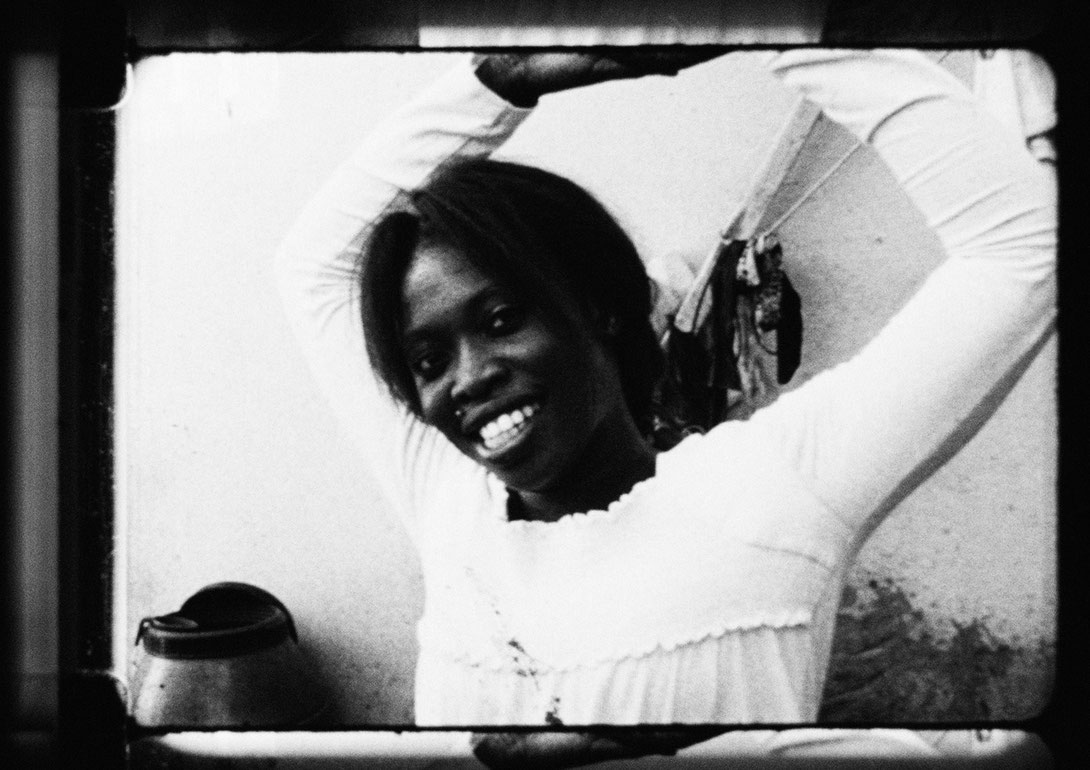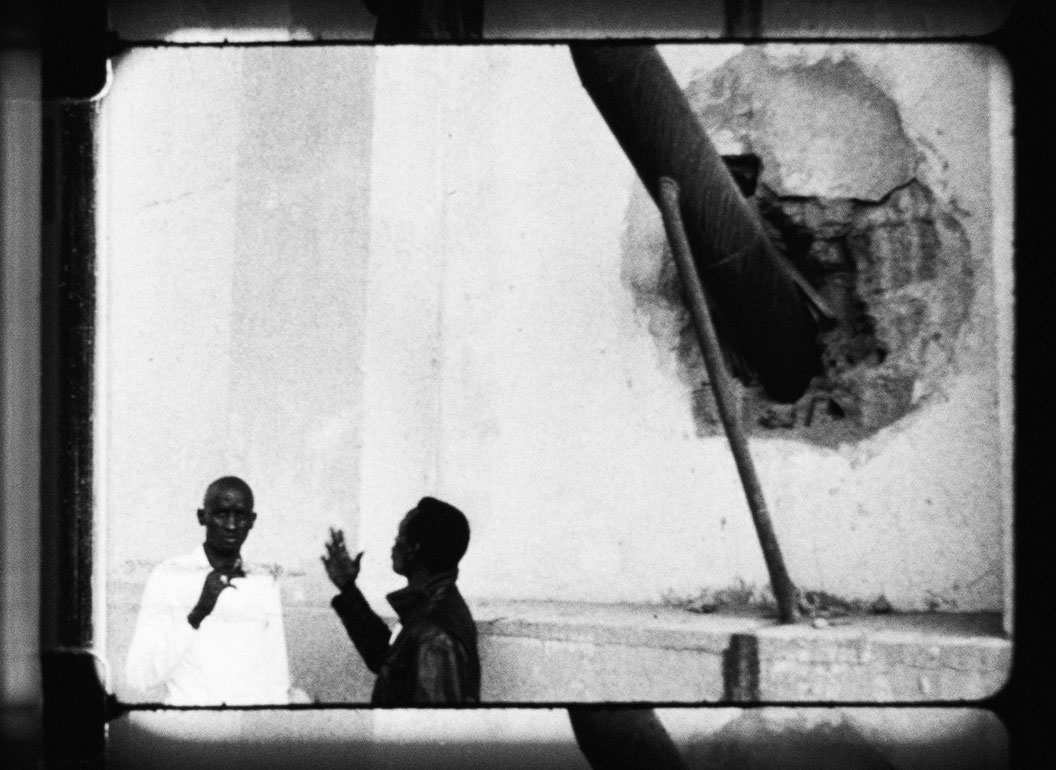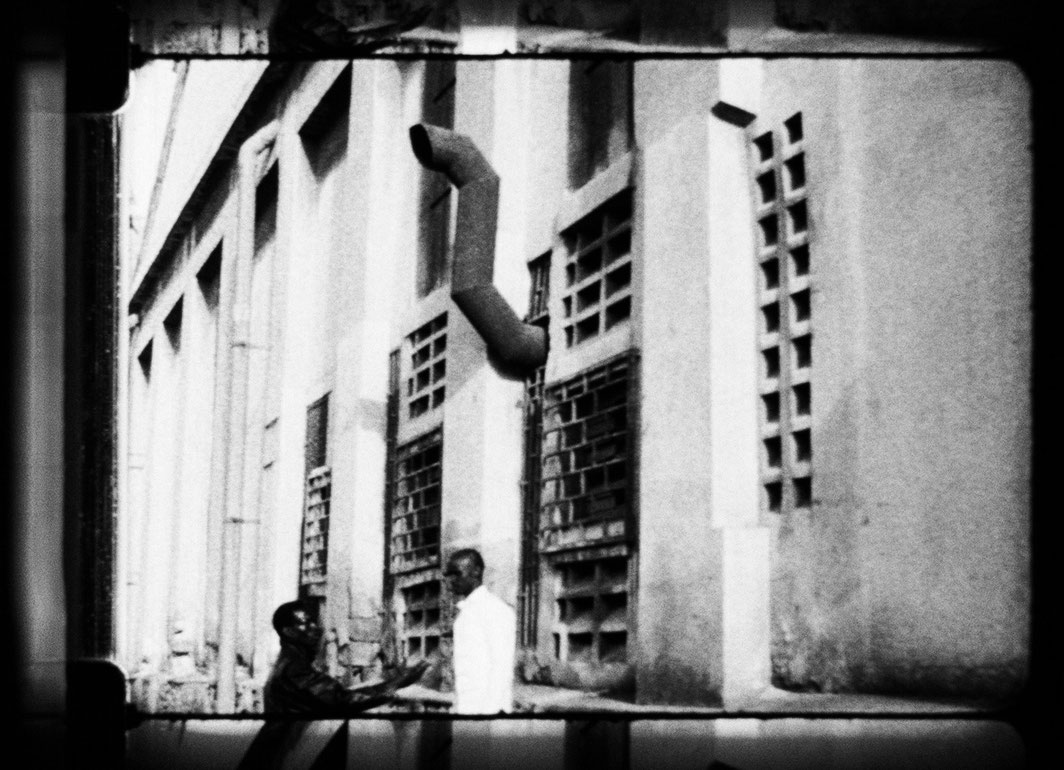Industrial Zone
Industrial Zone: The title appears in thick boldface print, flashing across the business section of a newspaper. There follows a short sequence of documentary snapshots, filmed off found paintings. These images pick up on figures from everyday life and religious practice, and according to the signature, were painted on public walls by a certain “Papisto Boy”. Later, two men are seen standing in front of an old whitewashed industrial building, smoking and talking. They turn toward the camera with their arms around each other, to pose for a portrait – the camera remains distanced. A tilt guides our gaze up to the underside of the tin roof where metal has been eaten away by rust.
Off-screen the sound of drums is heard. When the filmmaker meets with a dancing human figure, she is also set in motion. Her sweeping gestures and darting leaps in fact continually burst the confinement of the film frame, forcing the filmmaker to pursue the young dancer and adjust to her. The smiling dancer can barely be captured. It is almost as if the filmic intervention is reversed, as if it is determined from the opposite end of the optical axis – a notion Friedl vom Gröller has often introduced in her filmic portraits. This displacement animates the relationship between the one filming and the one being filmed, escaping the old hierarchies and familiar traps of traditional ethnographic practice. The filmmaker from Austria and the dancer from Dakar communicate with one another through their respective media. The black and white 16 mm material was shot in Senegal in 2014, at the peanut factory “once famous,” according to Gröller. The energetic performance of the dancer took place in her courtyard. The film ends when the dance is over.
(Isabella Reicher)
Translation: Eve Heller
Zone industrielle
2015
Austria
3 min



